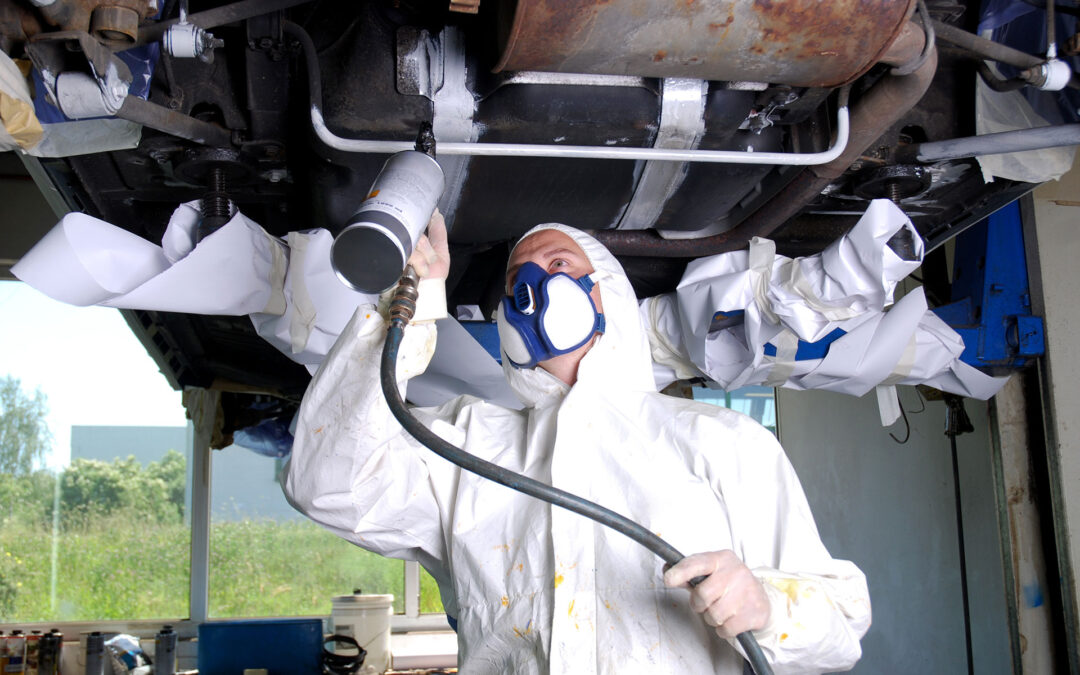One of the most crucial factors a car owner must consider when it comes to maintenance is rust prevention. Protecting your vehicle from rust and corrosion is a serious undertaking because once rust forms it is difficult to eliminate, and damage and destruction done by rust is irreversible.
What is Rust?
Rust is a reddish brown oxide that can accumulate on iron and its alloys, like steel and other metals. Rust is formed when oxygen and moisture come into contact with these metals for prolonged periods. Rust is actually an iron oxide, which is created from electrochemical reactions produced by the combination of these elements.
Why is Rust Formation so Prevalent?
When you think of the components required for rust formation: oxygen, moisture, and metal, it is no surprise that rust and corrosion is problematic for a lot of car owners. Many vehicle owners tend to take on an attitude of surrender, believing there is no effective way to prevent rust from forming.
Obviously, your vehicle is made up of metal components, and it is going to be exposed to oxygen and moisture on a regular basis. Effective measures can be taken to stop rust before it starts.
Outdoor Elements
Depending on the season, there are a variety of outdoor elements and weather conditions to take into consideration.
Canadian winters can ravage the metal components on your vehicle if not properly protected. Not only is there a continual presence of oxygen and moisture around your vehicle during the winter, there are also roads covered in salt and sand to contend with. Road salt accelerates the formation of rust and can easily get entrapped in the cracks and crevices or your vehicle, slowing breaking down the metals.
As the weather changes and temperatures warm up, this is when those concealed salt deposits really start to go to work on corroding your vehicle. Canada’s changing seasons put an even greater burden on car owners to ensure vehicles are adequately safeguarded.
Is Manufacturer Rust Proofing Enough?
Automobile producers often take some precautions to prevent vehicles from rusting before the car is even driven off the lot. A technique called galvanization employs the use of chemical solutions to provide vehicles with a built-in layer of rust proofing.
However, this protection eventually wears off as time goes on and should be replaced with another form of rust proofing. Even small scratches on the body of your vehicle caused by rocks or debris coming off the road can compromise the effectiveness of manufacturer rust protection.
To ensure your car is fully protected, regular maintenance checks and rust proofing services can increase the value and life of your vehicle.
Tips for Rust Prevention
Engaging in a few helpful practices can help prevent rust from forming and destroying the body of your vehicle.
Some useful rust prevention tips, include:
- Regular car washes
- Wax and sealants
- Cleaning and detailing
- Expert rust proofing
Regular Car Washes
Having your car washed on a regular basis is not only good for the appearance, but also for performance and protection. A professional car wash will help remove any embedded salt, dirt, and other contaminants that can damage your vehicle.
Wax and Sealants
Applying wax or sealers after a wash is an effective way to protect the finish from chips and scratches. Your paintjob provides a good level of protection for the metal body, but if the metal becomes exposed, it is vulnerable to rusting. Waxing helps keep the finish intact.
Cleaning and Detailing
It is also critical to keep the inside of your vehicle clean to prevent rust formation. Rust damage can start from the inside of your car if it is not kept clean. Accumulated dirt and grime can attract moisture, creating the perfect conditions for rust and corrosion.
Professional detailing can help keep your vehicle in pristine condition, inside and out.
Rust Proofing Brampton
For professional rust proofing and auto maintenance in Brampton and the GTA, Valvoline Express Care offers an excellent solution.
The experts at Valvoline can help extend the life of your vehicle, while preventing rust, deterioration, and break down.


